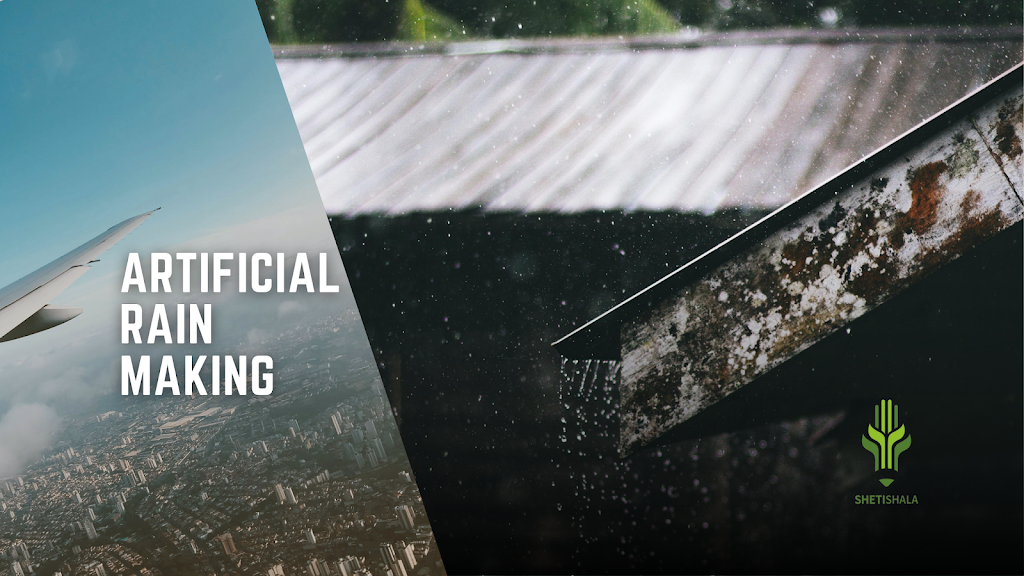
What is artificial rain making ?
It has emerged as a fascinating field, manipulating clouds to induce precipitation. This process hinges on understanding cloud classifications based on temperature, distinguishing between warm and cold clouds.
The Foundation of Cloud Seeding
Clouds are categorized into warm and cold clouds, depending on their top temperatures. This classification forms the foundation for cloud seeding techniques, each tailored to the unique characteristics of warm and cold clouds.

Cloud Seeding Mechanisms: The Science of Rainmaking
Cloud seeding involves the introduction of foreign materials to clouds, stimulating the precipitation process. The methods differ for warm and cold clouds.
Seeding of Cold Clouds:
The Ice Crystal Approach Cold cloud seeding employs two primary methods Silver Iodide Seeding Silver iodide plays a pivotal role in seeding cold clouds, promoting the formation of ice crystals necessary for precipitation. This technique harnesses the unique properties of silver iodide to enhance cloud dynamics.
Dry Ice Seeding
An alternative method involves the use of dry ice to trigger the coalescence of ice crystals, further encouraging precipitation in cold clouds.
Seeding of Warm Clouds:
The Water Droplet Technique. Warm cloud seeding utilizes distinct materials and techniques to induce Precipitation:

Sodium Chloride (Common Salt) Seeding
Warm clouds respond favorably to the sodium chloride, commonly known as common salt. This compound mainly acts as a cloud seeding agent in our process, facilitating the aggregation of water droplets for precipitation.

Water Drop Technique
Another approach involves the water drop technique, a methodical process to encourage warm clouds to release precipitation. This technique harnesses the natural tendencies of warm clouds, promoting raindrop formation.
The Future of Weather Manipulation
As we delve into the intricate world of rainmaking, understanding the nuances of cloud seeding in both warm and cold clouds becomes essential. Silver iodide, dry ice, sodium chloride, and water drop techniques play distinctive roles, unlocking the potential to influence weather patterns and contribute to water resource management. Embracing these mechanisms not only expands our scientific prowess but also offers a glimpse into the possibilities of shaping our environment through innovative interventions.

check my others blogs



